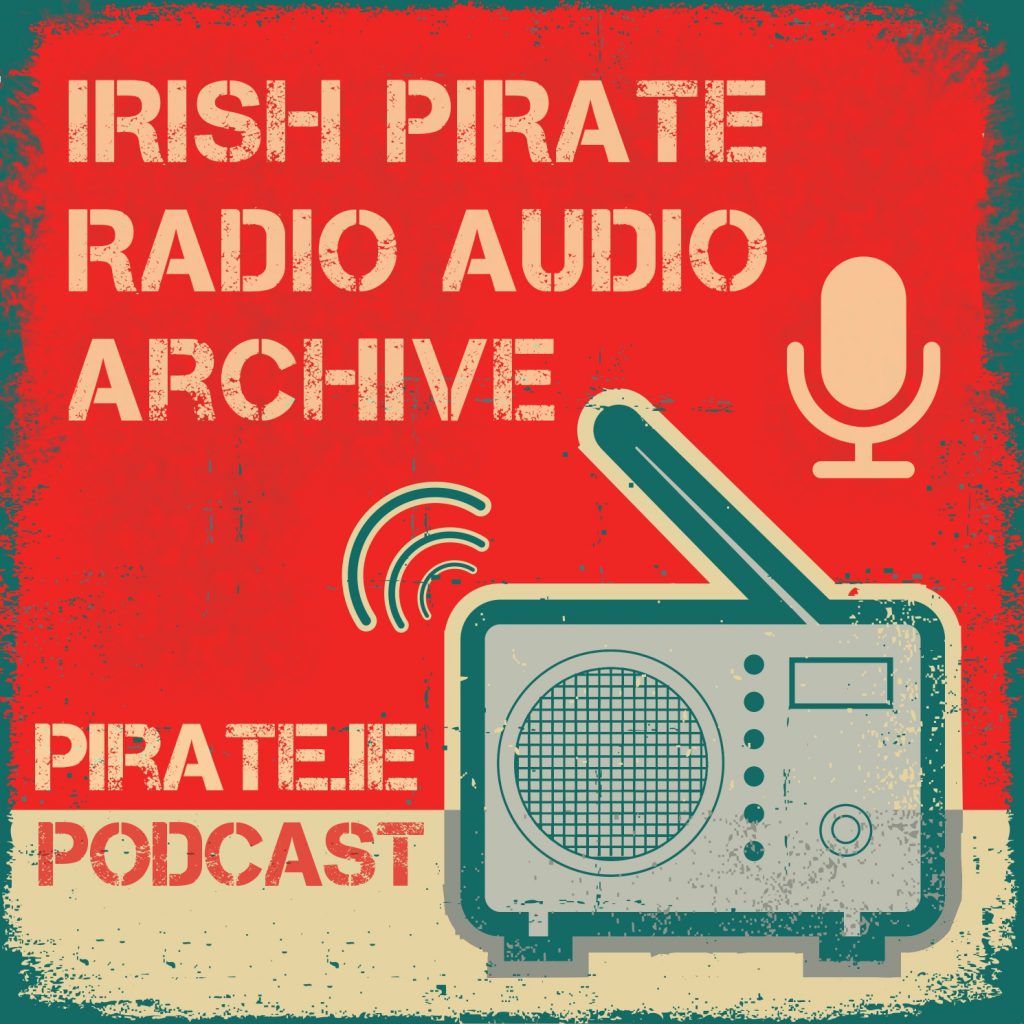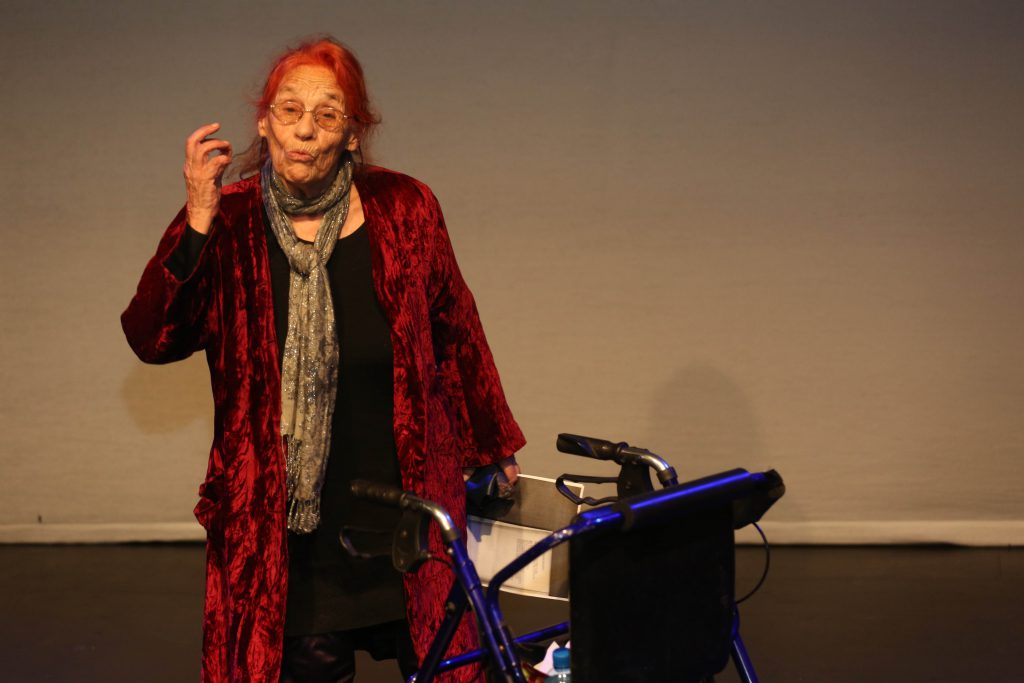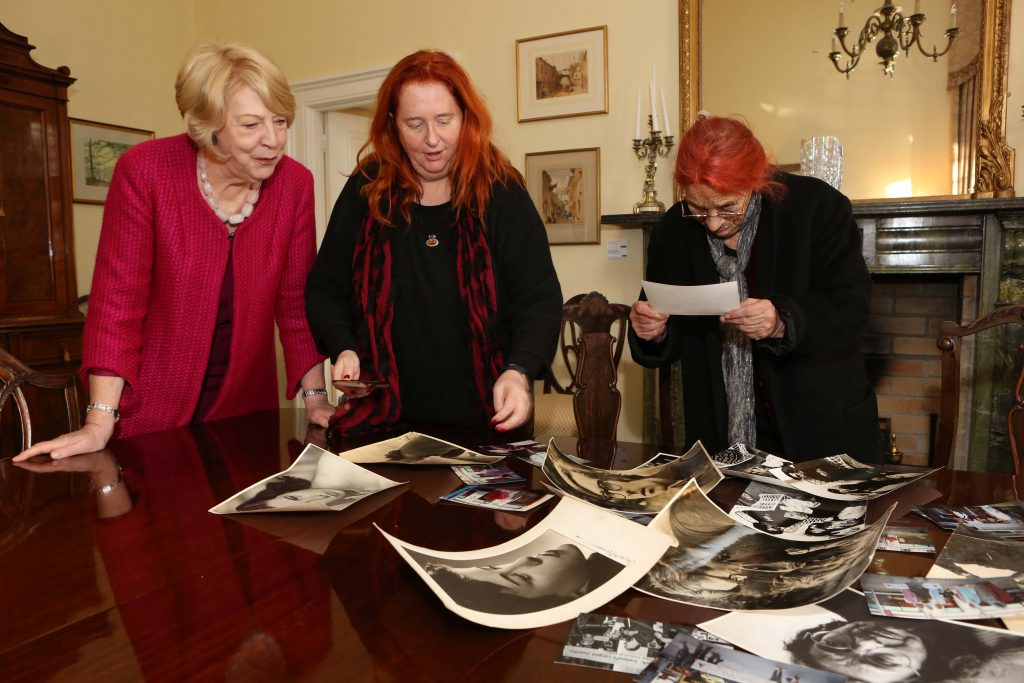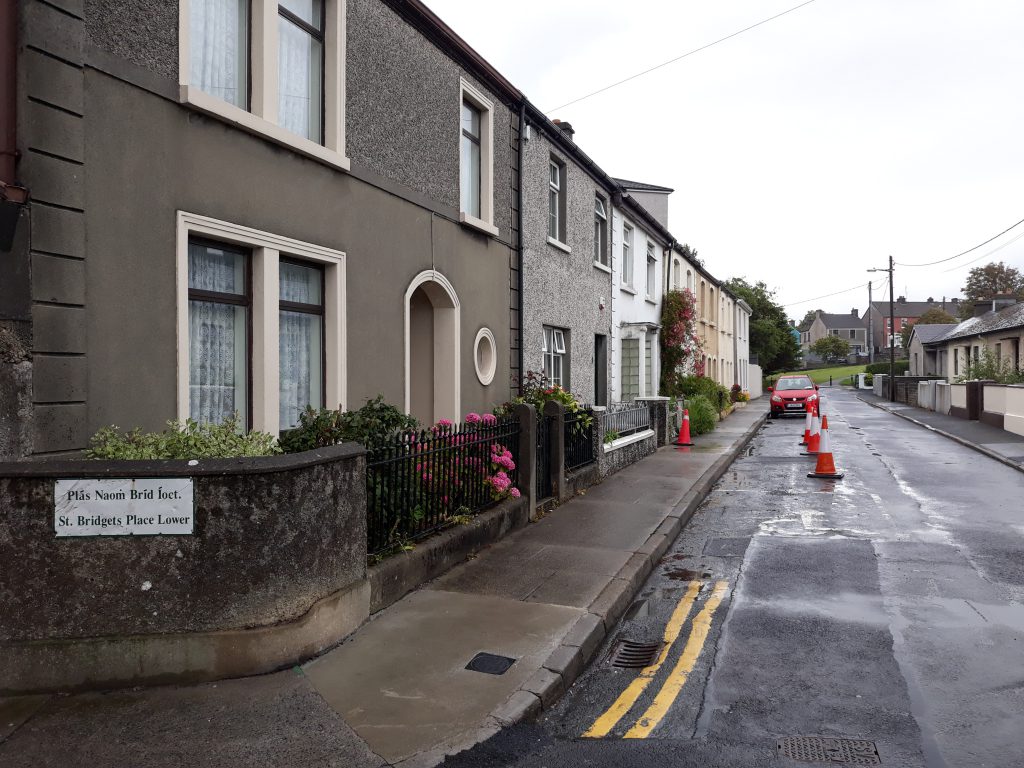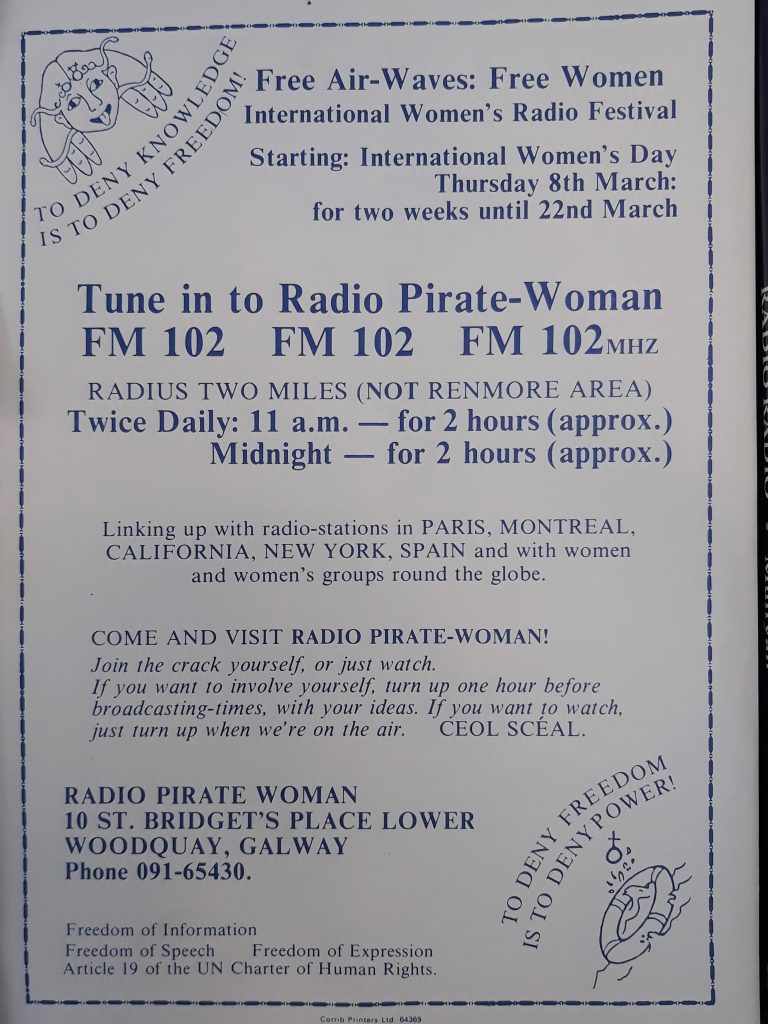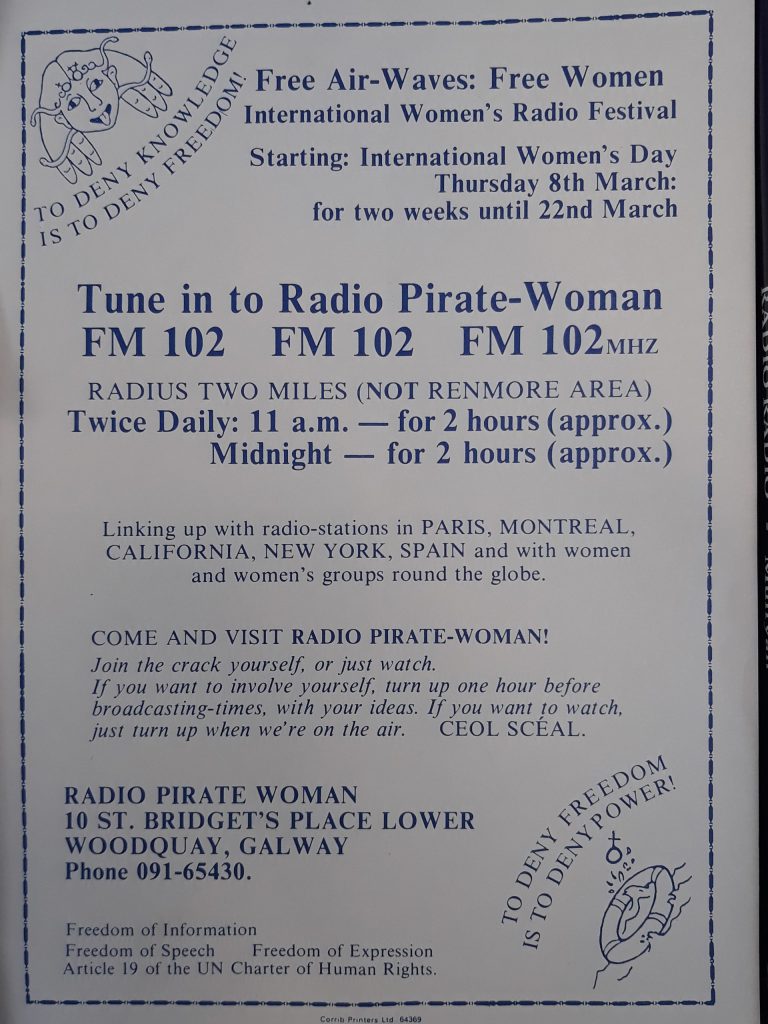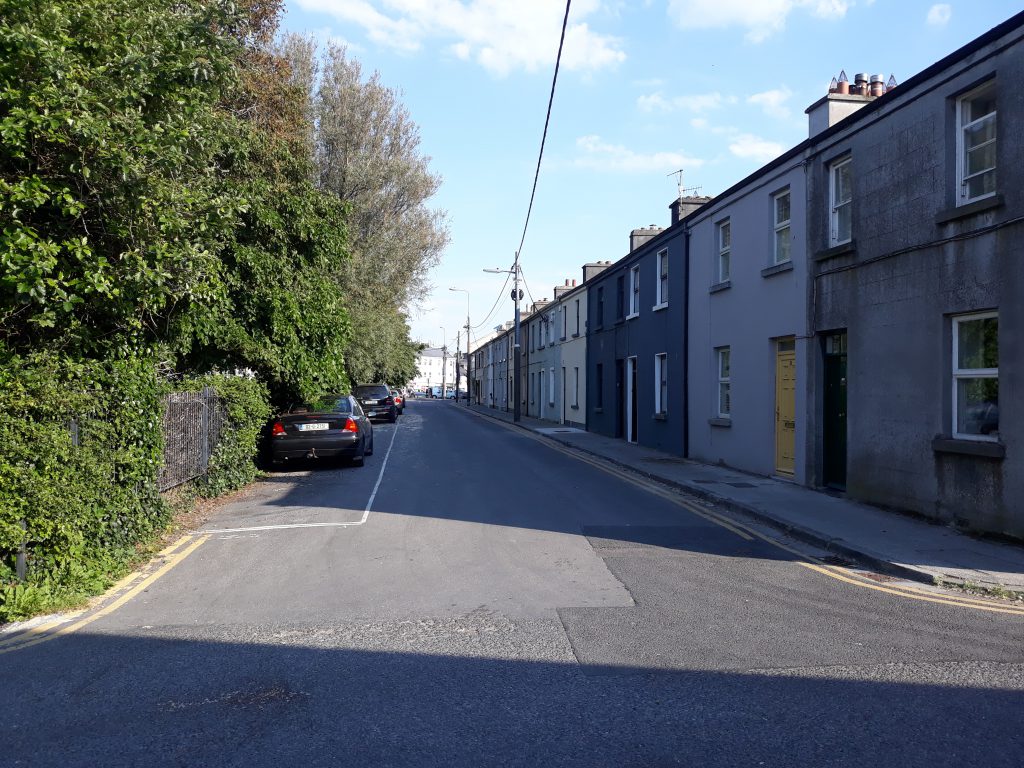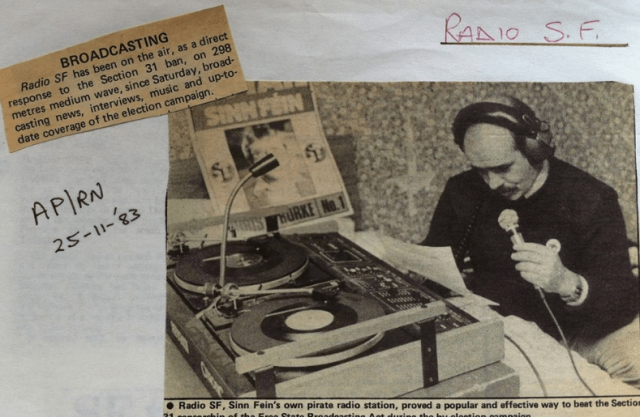Podcast: Play in new window | Download
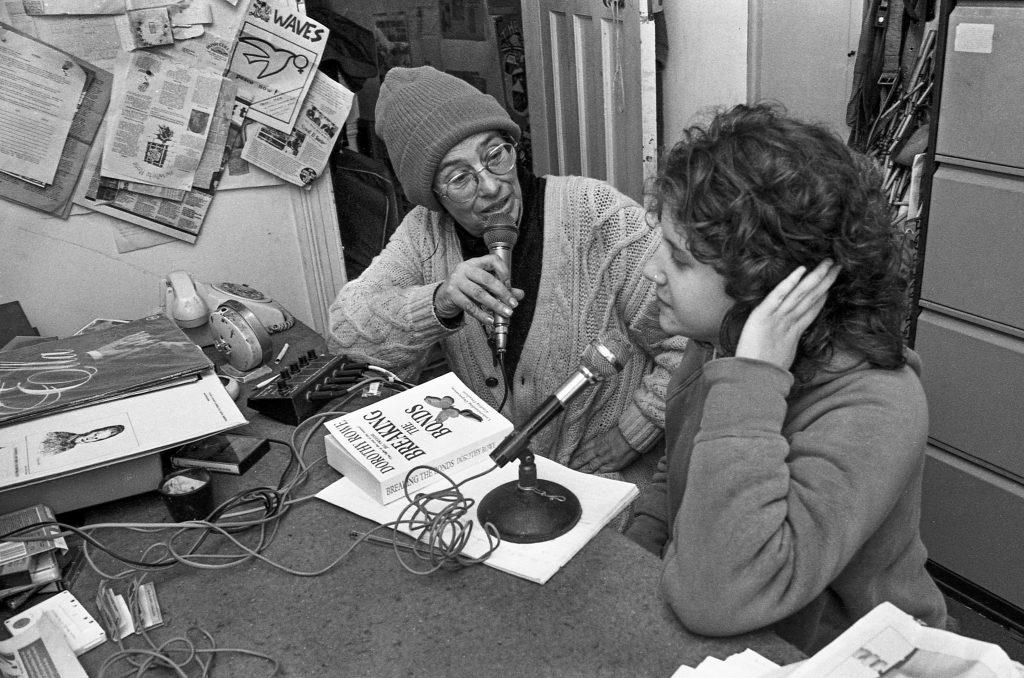
Radio Pirate Woman was one of Ireland’s unique pirate radio stations, run by activist and dramatist Margaretta D’Arcy (RIP) from her home in Galway. It began as Women’s Scéal Radio in 1987 but changed its name to Radio Pirate Woman in 1989 to underline its illegal status in the new era after the introduction of new broadcasting legislation. The technical set-up was very basic and there was no studio as such, with women sitting around Margaretta’s table and discussing the news of the day. The low-powered FM transmitter covered only the city centre, but although Radio Pirate Woman’s geographical reach was limited, it was known in feminist and activist circles way beyond Galway.
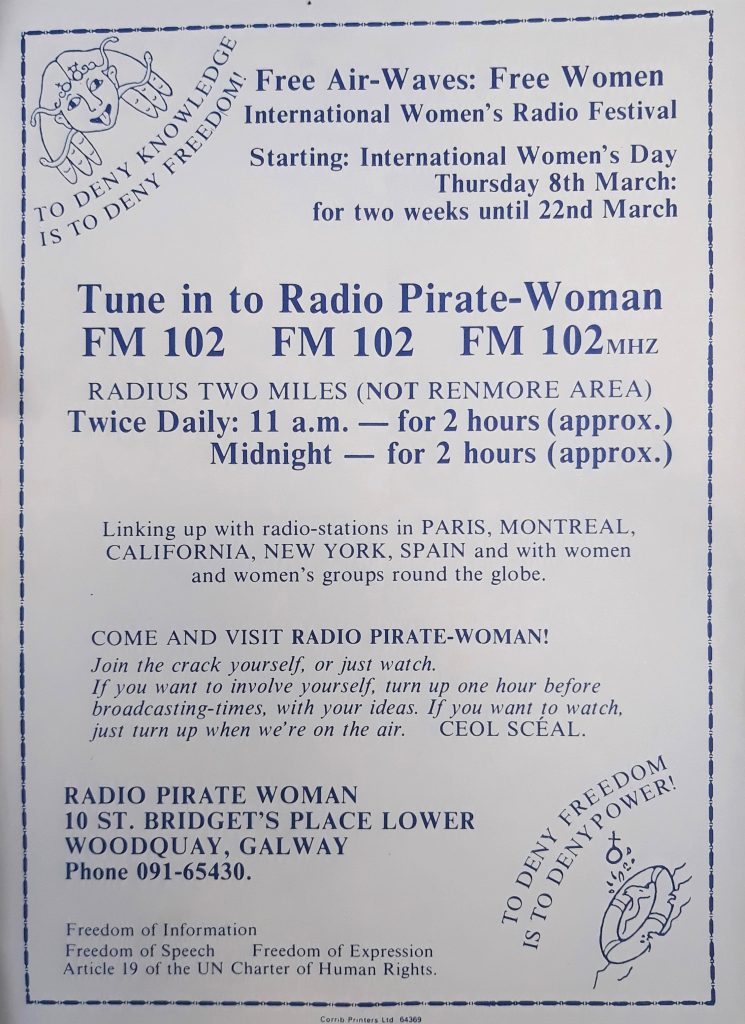
In this recording, Margaretta is heard presenting a late-night programme with esoteric music and news items about women’s issues and human rights. She calls it ‘a bit of a random radio’ as she attempts to fix technical problems and rewinds cassettes on the air. Due to interference caused to her neighbour’s television, Margaretta announces that she is changing her broadcasting times to avoid upset. The recording ends with part of a cassette from WINGS (Women’s International News Gathering Service) based in Austin, Texas, a common feature on the station.
The tape was made from 102 FM on 26th November 1999 between 0015-0100 and is courtesy of John Breslin. Radio Pirate Woman continued intermittently until about 2010 and Margaretta D’Arcy died in 2025 at the age of 91.

